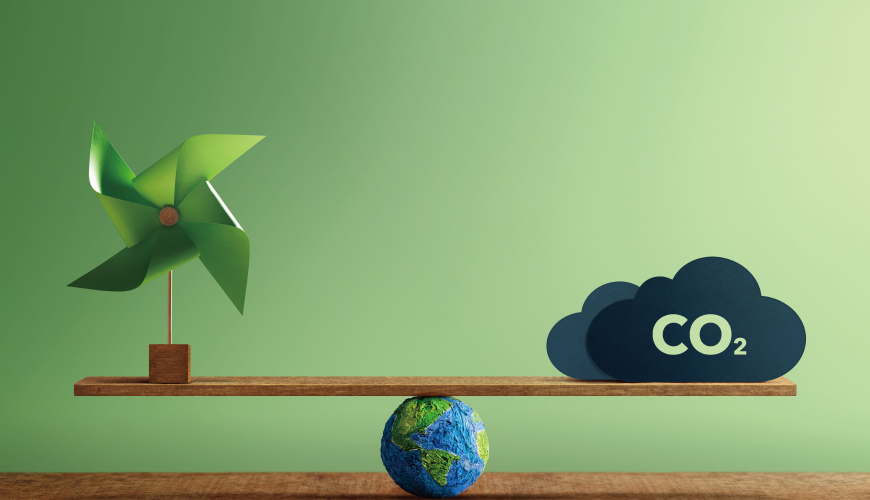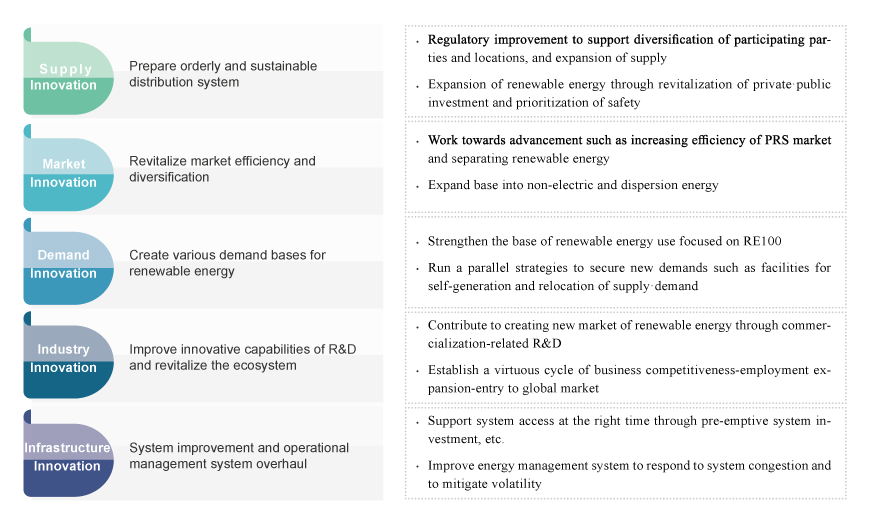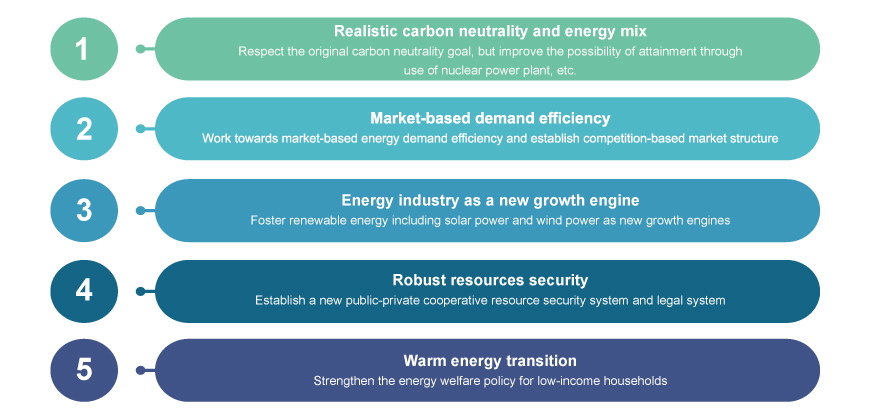Industry Focus
- Home
- Investment Opportunities
- Latest Information
- Industry Focus

Renewable Energy, a Key to Carbon Neutrality
With the spread of awareness of the severity of climate change, renewable energy has emerged as an alternative to the carbon neutrality goal. The International Energy Agency (IEA) predicted that the share of renewable energy, which stood at 12 percent in 2020, will be significantly expanded to 67 percent by 2050. It also set out the analysis that renewable energy will play a key role in establishing the future energy system.
Korean Government’s Response to Carbon Neutrality
The ‘5th Renewable Energy Basic Plan’, with an aim to enter the low carbon economy-society, plans to deploy 84.4 GW renewable energy facilities by 2034 to create the ecosystem allowing renewable energy to serve as main sources of energy. The final goal of this plan is to make renewable energy accounts for 25.8 percent of national power generation through facilities deployment in the long timeframe.
Based on renewable energy innovations in five areas including supply, market, demand, industry, and infrastructure to improve the potential of related industrial fields, it is expected to overcome various limits* standing in the way of achieving the 2050 carbon neutrality goal.

[Reference] 5 Policies of New Government
 Industrial Trends and Technological Capability of Renewable Energy
Industrial Trends and Technological Capability of Renewable Energy
Despite China’s aggressive move based on cheaper solar power generation facilities, Korea has superior technology, becoming the only country left to compete with China in the high efficiency-based advanced solar power market. When it comes to the offshore wind power generation, it is expected to continue R&D activities to improve technology of key parts such as turbines, building on excellent technological capability in the tower and substructure.
| Korea | China | Japan | EU | USA | ||||||
|---|---|---|---|---|---|---|---|---|---|---|
| Level(%) | Gap(Years) | Level(%) | Gap(Years) | Level(%) | Gap(Years) | Level(%) | Gap(Years) | Level(%) | Gap(Years) | |
| High-efficiency Solar Cell Technology | 90.0 | 1.0 | 87.5 | 1.8 | 97.5 | 0.3 | 100.0 | 0.0 | 93.0 | 0.5 |
| Wind Power Generation Technology | 75.0 | 5.0 | 80.0 | 3.3 | 76.5 | 4.0 | 100.0 | 0.0 | 90.0 | 1.0 |
‘RE100 Campaign’, Corporate’s Strategy for Survival in the Carbon-Neutral Age
The global RE100 (Renewable Electricity 100%) is a volunteer campaign encouraging companies to source 100% of their electricity from renewable energy, led by the Carbon Disclosure Project (CDP), an international organization. However, as global RE100 companies request their suppliers to use renewable energy to achieve their goal as well, domestic companies including SK Hynix, Samsung SDI, and LG Chemical are increasingly requested to use renewable energy. Due to the high dependency of industries on trade, global RE100 implementation has been regarded as a survival strategy, not a matter of choice, for companies. From the long-term perspective, it is inevitable for corporations to participate in the global RE100 campaign.
Present and Future of Korean-style RE100 System
However, despite the above-mentioned efforts by the government, the institutional foundation is insufficient, i.e., restructuring of the electricity market, to implement RE100. In this context, the measures for institutional improvement will be laid out to address obstacles in the gradual expansion of RE100 in Korea.
In the short term, incentives will be devised to reduce burden and encourage participation of domestic companies. In the mid-and long-term, it is expected to introduce the Korean-style RE100 industrial complex and the Korean-style RE100 certification system (labelling) for diversification of institutional implementation models. By doing so, it is expected to continue the discussion on securing business models to expand the base of and facilitate the institutions of the Korean-style RE100.
By Seung-Hyun LEE (shyun003@energy.or.kr)
Korea Energy Agency
<The opinions expressed in this article are the author’s own and do not reflect the views of KOTRA>










